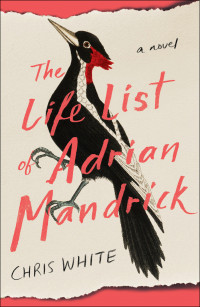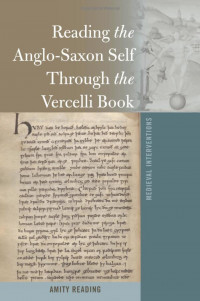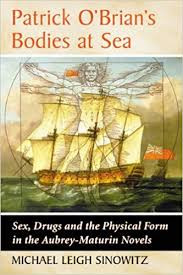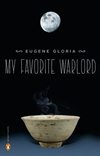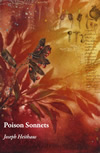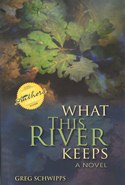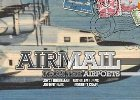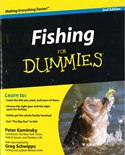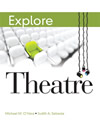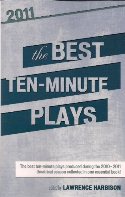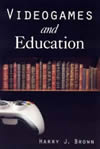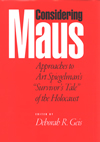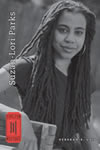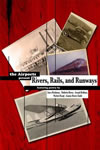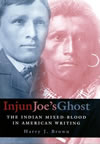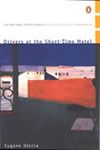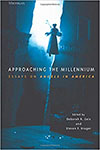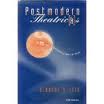Faculty Book Publications
A quick preview of some of the works our faculty have authored or edited.
|
Library of My Hands by Joseph Heithaus Dos Madres Press (2020) |
"Reading the poems of this moving book is like listening to the wind clink bare branches together. This is a book that walks the line between meditation and wonder and seems to be at home in that in-between state. Almost nothing escapes the poet's study, from the glow of morning light to a child mouthing her first words. Even as the poems observe the world with intimacy, there is a further wonder this book declares: that we have the intimacy of language to articulate our belonging. One task for the poet is to summon the language necessary to persuade us that we do indeed belong to the world, despite our uncertainties and suffering. This book, and the mind behind it, ably meets that task with perhaps the most solemn human perspective there is--affection."--Maurice Manning |
|
Read My Plate: The Literature of Food by Deborah R. Geis Lexington Books (2019) |
Deborah R. Geis expands our understanding of the literature of food, both in terms of genre and of methods to approach a portion of food writing. Her delicate explication of food memoir and performance art through lenses of gender, race, and migration melds with treatment of more traditional texts of fiction and poetry to yield a deeply empathetic contemplation about food’s personal and political resonance. -- Miriam Mara, Arizona State University |
|
Imagining Religious Toleration |
"Imagining Religious Toleration is a stimulating and provocative project, one which charts a series of writers and their perceptions of toleration. Its intellectual net has been widely cast so that it will undoubtedly attract all types of readers." ⏤ Andrew Hadfield, Department of English, University of Sussex |
|
Sightseer in This Killing City by Eugene Gloria Penguin (2019) |
"In the tradition of Whitman and the Beats, Gloria's 'discourse of bleeding utterances' memorably charts cities, countries, and his own family." ⏤ Publishers Weekly |
|
The Life List of Adrian Mandrick by Chris White Touchstone(2018)
|
In Chris White's debut novel The Life List of Adrian Mandrick, the title character's life seems in perfect order--with an excellent job in a Colorado hospital, a wife and two young children he loves deeply, and a serious passion for birding. His life list comprises 863 species correctly identified and cataloged—it is, in fact, the third longest list in the North American region. |
|
Reading the Anglo-Saxon Self Through the Vercelli Book by Amity Reading Peter Lang(2018) |
"Through analysis of the medieval soul and body motif in the Old English poems and homilies of the tenth-century Vercelli Book, this book theorizes an Anglo-Saxon conception of the self, one that is performative, embodied, and fundamentally religious, and which challenges modern scholarly perceptions of medieval thought as uniformly and unproblematically aligned with a rigid soul/body dualism."
|
|
Patrick O'Brian's Bodies at Sea by Michael Leigh Sinowitz (2014)
|
An exploration of the complex roles that bodies—both literally and figuratively—play in the 21 volume Aubrey-Maturin series reveals much about the novels’ many meditations on mind and body. Beginning with a consideration of genre norms and the bodies of the novels’ main characters, the book’s focus shifts to the ways the series offers interconnections between the human body and history. More literal considerations of the body examine O’Brian’s depictions of drug use, particularly the opium addiction that afflicts Stephen Maturin, and human sexuality in its many guises. The work then focuses on Desolation Island, the fifth novel in the series, in light of the discussions above but also in terms of political and psychological tropes that draw upon the relationship of mind and body. Questions are examined about the relationship of reader to author, and what sustains such a long narrative and what continues to bring a reader back again and again. |
|
My Favorite Warlord by Eugene Gloria (2012) |
"Fathers and sons; brothers, sisters, and immigrant culture; Filipino heritage and multicultural San Francisco; and—perhaps most prominent—the ideals and limits of Japanese martial tradition animate this lively, fast-paced third book from Gloria. His technique varies too, with a norm of broad-shouldered, no-nonsense free verse interspersed with quatrain, sonnet, pantoum, and haibun, a Japanese hybrid of verse and prose... Gloria establishes himself as a poet of memory, of masculinity, as well as of Asian American political identity (with, for example, an elegy to Vincent Chin, slain in a famous anti-Asian hate crime). His formal resourcefulness and his attention to manhood, its symbols, its troubles, place him in the company of Bruce Smith, though his work will also, and rightly, find another niche among other Asian American writers; Gloria (who teaches at DePauw University in Indiana) sets himself confidently against injustice, in favor of inquiry, amid the eclectic language of contemporary scenes." |
|
Poison Sonnets by Joseph Heithaus (2012) |
"Love and death are woven cunningly through Joseph Heithaus’s Poison Sonnets. At times the poems bring to mind those volumes of sketches and observations kept by 19th century naturalists, which themselves could surprise and startle with their complicated emotions, vivid frankness, and sense of immediacy. By turns mordant or elegiac, these poems are anything but predictable. And the sonnet as a form enjoys a fresh revival in this poet’s inventive and original renderings.” |
|
What This River Keeps by Greg Schwipps (2012) |
"What This River Keeps bears comparison to the best work of Steinbeck--in this case we're given the vivid portrayal of the common working men and women of rural Indiana juxtaposed against great forces, without pity or hope, but without true defeat, thought they may well lose all in the end. Schwipps also gives us, in full measure, the ancient father and son story, reinvented and made new; the complications of family; the friendship between men; the long tested love between married people; the discovery of the responsibilities of love; the love and care of the land; the love of a river; the keen life of the outdoors; the close attention to the earth in its seasons and myriad variousness. This is a very fine first novel. I read it compelled and fascinated to the last word." |
|
Airmail from the Airpoets by Joseph Heithaus San Francisco Bay Press |
“The Airpoets have been writing postcard poems to each other for several years. Airmail from the Airpoets gives us a glimpse into their delightfully worded, sometimes personal travels with insightful observations and stunning images. I am drawn to the unique snapshots of the various localities represented in this collection. In an otherwise technologically driven twitter-tatter world, the Airpoets give us all hope that the arts of poetry and written correspondence are alive and well and will continue to thrive as long as that of individual passion." --Robin Denman, poet and letter carrier |
|
Fishing for Dummies, 2nd Edition by Greg Schwipps (2011) |
Fishing For Dummies, 2nd Edition prepares anglers for the ultimate fishing experience with useful knowledge and helpful tips for a successful fishing trip. Fishing continues to be one of the most popular pastimes, and with this 348 page reference book, anglers receive instruction on all aspects of fishing, from choosing the right gear to handling a caught fish. Greg Schwipps provides updated material in Fishing For Dummies, 2nd Edition, which includes information on the latest technology and more multi-species angling coverage.
|
|
Explore Theatre (2011) |
Chris White's Two-Character Play is the center piece of this digital Explore Theatre textbook by Allyn and Bacon. |
|
The Best Ten-Minute Plays Smith & Kraus(2012) |
"The best 10-minute plays produced during the 2010-2011 theatrical season collected in one essential book!" --Amazon
|
|
Videogames and Education by Harry Brown (2008) |
Videogames challenge our notions of identity, creativity and moral value, and provide a powerful new avenue for teaching and learning. This book is a rich and provocative guide to the role of interactive media in cultural learning. The book searches for specific ways to interpret videogames in the context of human experience and in the field of humanities research. It also shows how videogames have become a powerful form of political, ethical, and religious discourse, and how they have already influenced the way we teach, learn, and create. Brown discusses the major trends in game design, the public controversies surrounding videogames, and the predominant critical positions in game criticism. The book speaks to all educators, scholars, and thinking persons who seek a fuller understanding of this significant and growing cultural phenomenon. |
|
Considering Maus, edited by Deborah R. Geis University of Alabama Press(2007) |
Ten scholars explore many aspects of Art Spiegelman's two-volume illustrated novel Maus: A Survivor's Tale, including Spiegelman's use of animal characters, the influence of other "comix" artists, the role of the mother and its relation to gender issues, the use of repeating images such as smoke and blood, Maus's place among Holocaust testimonials, its appropriation of cinematic technique, its use of language and styles of dialect, and the implications of the work's critical and commercial success. |
|
Susan-Lori Parks by Deborah R. Geis |
This addition to the Michigan Modern Dramatists series offers an indispensable guide to Park's dramatic works, taking a close look at her major plays and placing them in context. Deborah R. Geis traces the evolution of Park's art from her earliest experimental pieces to the hugely popular Topdog/Underdog to her wide-ranging forays into fiction, music, and film. |
|
Hoodlum Birds by Eugene Gloria (2006) |
"Gloria gets better and better. His new work practices a profound care for the particulars of an individual life and the world at large, integrating the values of philosophical inquiry, reverie, and imagination. Poem after poem enacts a yearning for a wider and deeper sense of human belonging, using language that has all the luminosity and intensity of a spiritual pilgrimage, and the melancholy of racial, cultural, and spiritual alienation. These elegant, intelligent, and passionate poems hurt and reward us." --Li-Young Lee
|
|
Rivers, Rails, and Runways by Joseph Heithaus (2008) |
"Rivers, Rails and Runways introduces the work of five distinctive voices from the Heartland. Rooted in Indiana, the poems capture the lure of the landscape and its relevance to each poet's journey. Pulsating throughout are the authors' personal histories and meditations. Notable for its thematic range, the anthology gains its strength from a juxtaposition of styles, each elegant and attuned to the rhythms of everyday life."
|
|
Injun Joe's Ghost by Harry Brown University of Missouri(2004) |
Injun Joe's Ghost focuses on a significant figure in American history and culture that has, until now, remained on the periphery of academic discourse. Brown offers an in-depth discussion of many texts, including dime novels and Depression-era magazine fiction, that have been almost entirely neglected by scholars. This volume also covers texts such as the historical romances of the 1820s and the novels of the twentieth-century "Native American Renaissance" from a fresh perspective. Investigating a broad range of genres and subject over two hundred years of American writing, Injun Joe's Ghost will be useful to students and professionals in the fields of American literature, popular culture, and native studies. |
|
Drivers at the Short-Time Motel by Eugene Gloria Penguin Books(2000) |
Eugene Gloria's Drivers at the Short-Time Motel is propelled by an imagistic sincerity and paced lyricism. Each poem seems to embody the plain-spoken as well as the embellishments that we associate with classical and modern Asian poetry. Though many of the poems address the lingering hurt of cultural and economic imperialism, worlds coexist in the same skin through magical imagery. Gauged by a keen eye, history is scrutinized, but through a playful exactness. These wonderful poems are trustworthy." --Yusef Komunyaaka This collection of poems was selected by Yusef Komunyakaa for the 1999 National Poetry Series. |
|
Approaching the Millennium, edited by Deborah R. Geis University of Michigan Press(1997) |
The original essays in Approaching the Millennium explore the complexities of the play and situate it in its particular, conflicted historical moment. The contributors help us understand and appreciate the play as a literary work, as theatrical text, as popular cultural phenomenon, and as political reflection and intervention. Specific topics include how the play thematizes gender and sexuality, race and ethnicity; the postmodern incarnation of the Brechtian epic; AIDS and the landscape of American politics. The range of different international productions of Angels in America provides a rich basis for discussion of its production history, including the linguistic and cultural shifts required in its "translation" from one stage to the next. |
|
Postmodern Theatric(k)s by Deborah R. Geis University of Michigan Press (1993) |
Postmodern Theatric(k)s focuses on the voices that have emerged from American experimental theater of the 1960s, voices shaped by the culture of television, film, Pop Art, and rock music. Increasingly, these writers have brought a distinctly new approach to the use of monologue. Deborah Geis argues that in place of the psychological revelation of the Shakespearean soliloquy, these postmodern monologues play "tricks" by altering, suspending, or rupturing the narrative "progress" of a play. Character development through monologue is replaced by parody, theatricality, and "con" games. For some recent performance artists, the notion of character itself explodes, as monologue permits the performer to play at blurring the fictional and the autobiographical. |
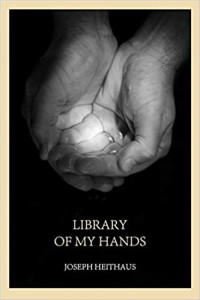
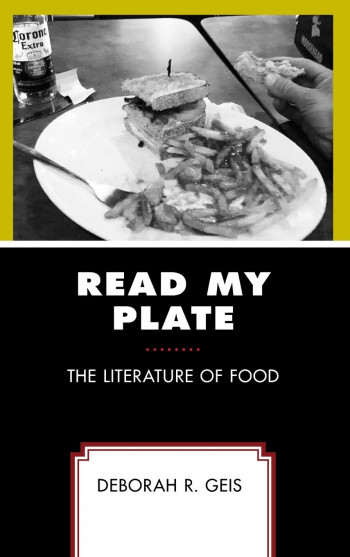
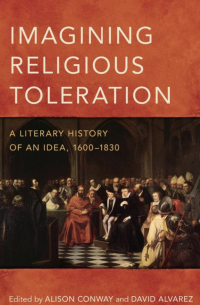
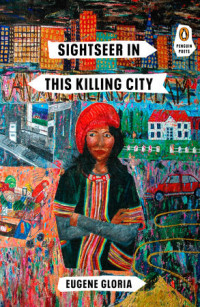 .
.